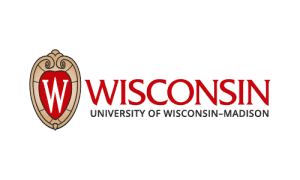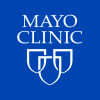Request Demo
Last update 08 May 2025
mTOR x NEDD9
Last update 08 May 2025
Related
1
Drugs associated with mTOR x NEDD9Target |
Mechanism NEDD9 inhibitors [+1] |
Active Org. |
Originator Org. |
Active Indication |
Inactive Indication- |
Drug Highest PhasePhase 2 |
First Approval Ctry. / Loc.- |
First Approval Date20 Jan 1800 |
24
Clinical Trials associated with mTOR x NEDD9NCT05505747
Enhancing Recovery Through a Combined Mechanobiologic Intervention Following Meniscus Repair
Arthroscopic meniscal procedures are the most commonly performed orthopaedic procedure in the U.S. affecting 15% of Americans ages 10-65 years. Meniscus injury is also known to increase the risk of posttraumatic osteoarthritis (PTOA). The current randomized clinical trial will test a novel intervention after meniscal repair that combines an oral senolytic fisetin and real-time biofeedback program to restore joint loading and subsequent return to activity.
Start Date01 Jul 2025 |
Sponsor / Collaborator |
NCT06796374
A Comparison of Fisetin Kinetics in Young and Old Adults - FISEKIN-1
This study investigates the differences in the kinetic parameters of fisetin in two cohorts of healthy volunteers:
Cohort 1) volunteers aged 18-30 years (n = 40) Cohort 2) volunteers aged 65 years or older (n = 40)
The purpose of this study is:
1. To describe the fisetin kinetics after a single dose oral administration in older age.
2. To compare the fisetin kinetics after a single dose oral administration in old and young age.
FISEKIN-1 is designed as a four-arm study protocol. As well as two different age groups (18-30 years vs. 65 years and older), we want to compare fisetin kinetic parameters in two different fisetin formulations and dosages :
Arm 1) 100 mg fisetin (1x 1 capsule), cohort 1: young age Arm 2) 100 mg fisetin (1x 1 capsule), cohort 2: old age Arm 3) 1000 mg fisetin + 200 mg quercetin (2x 1 softgel capsule), cohort 1: young age Arm 4) 1000 mg fisetin + 200 mg quercetin (2x 1 softgel capsule), cohort 2: old age
Cohort 1) volunteers aged 18-30 years (n = 40) Cohort 2) volunteers aged 65 years or older (n = 40)
The purpose of this study is:
1. To describe the fisetin kinetics after a single dose oral administration in older age.
2. To compare the fisetin kinetics after a single dose oral administration in old and young age.
FISEKIN-1 is designed as a four-arm study protocol. As well as two different age groups (18-30 years vs. 65 years and older), we want to compare fisetin kinetic parameters in two different fisetin formulations and dosages :
Arm 1) 100 mg fisetin (1x 1 capsule), cohort 1: young age Arm 2) 100 mg fisetin (1x 1 capsule), cohort 2: old age Arm 3) 1000 mg fisetin + 200 mg quercetin (2x 1 softgel capsule), cohort 1: young age Arm 4) 1000 mg fisetin + 200 mg quercetin (2x 1 softgel capsule), cohort 2: old age
Start Date01 Feb 2025 |
Sponsor / Collaborator |
NCT06431932
Pharmacokinetics, Safety, and Efficacy of Fisetin - A Phase I and Pilot Phase IIa Study
The accumulation of senescent cells with age is a central mechanism that contributes to the development of chronic diseases, primarily by driving systemic chronic inflammation. Senolytic compounds such as fisetin can selectively target senescent cells for elimination and reduce multiple age-related pathologies in animal models.
We will conduct a clinical trial in healthy volunteers and older patients with multiple chronic diseases. The participants will receive fisetin or placebo for two days, after which they will be examined at regular intervals for up to three months. We will investigate how fisetin is absorbed and metabolized by the body, and whether fisetin is safe. We will also identify methods to best measure the effect of fisetin on chronic inflammation, senescent cells, and general health.
We will conduct a clinical trial in healthy volunteers and older patients with multiple chronic diseases. The participants will receive fisetin or placebo for two days, after which they will be examined at regular intervals for up to three months. We will investigate how fisetin is absorbed and metabolized by the body, and whether fisetin is safe. We will also identify methods to best measure the effect of fisetin on chronic inflammation, senescent cells, and general health.
Start Date01 Jan 2025 |
Sponsor / Collaborator |
100 Clinical Results associated with mTOR x NEDD9
Login to view more data
100 Translational Medicine associated with mTOR x NEDD9
Login to view more data
0 Patents (Medical) associated with mTOR x NEDD9
Login to view more data
4
Literatures (Medical) associated with mTOR x NEDD901 Nov 2023·Molecular Cancer Research
CBF-Beta Mitigates PI3K-Alpha–Specific Inhibitor Killing through PIM1 in PIK3CA-Mutant Gastric Cancer
Article
Author: Tan, Patrick ; Hoj, Jacob P. ; Luftig, Micah A. ; Chu, Yunqiang ; Wood, Kris C. ; Ang, Hazel X. ; Stanland, Lyla J.
01 Dec 2013·Drug Discovery Today: Disease Mechanisms
Cilia and cilia-associated proteins in cancer
Article
Author: Seeger-Nukpezah, Tamina ; Serzhanova, Victoria ; Little, Joy L ; Golemis, Erica A
01 Jan 2012·Journal of OncologyQ4 · MEDICINE
Overexpression of S6 Kinase 1 in Brain Tumours Is Associated with Induction of Hypoxia-Responsive Genes and Predicts Patients' Survival
Q4 · MEDICINE
ArticleOA
Author: Ismail, Heba M.S.
Analysis
Perform a panoramic analysis of this field.
login
or

AI Agents Built for Biopharma Breakthroughs
Accelerate discovery. Empower decisions. Transform outcomes.
Get started for free today!
Accelerate Strategic R&D decision making with Synapse, PatSnap’s AI-powered Connected Innovation Intelligence Platform Built for Life Sciences Professionals.
Start your data trial now!
Synapse data is also accessible to external entities via APIs or data packages. Empower better decisions with the latest in pharmaceutical intelligence.
Bio
Bio Sequences Search & Analysis
Sign up for free
Chemical
Chemical Structures Search & Analysis
Sign up for free



